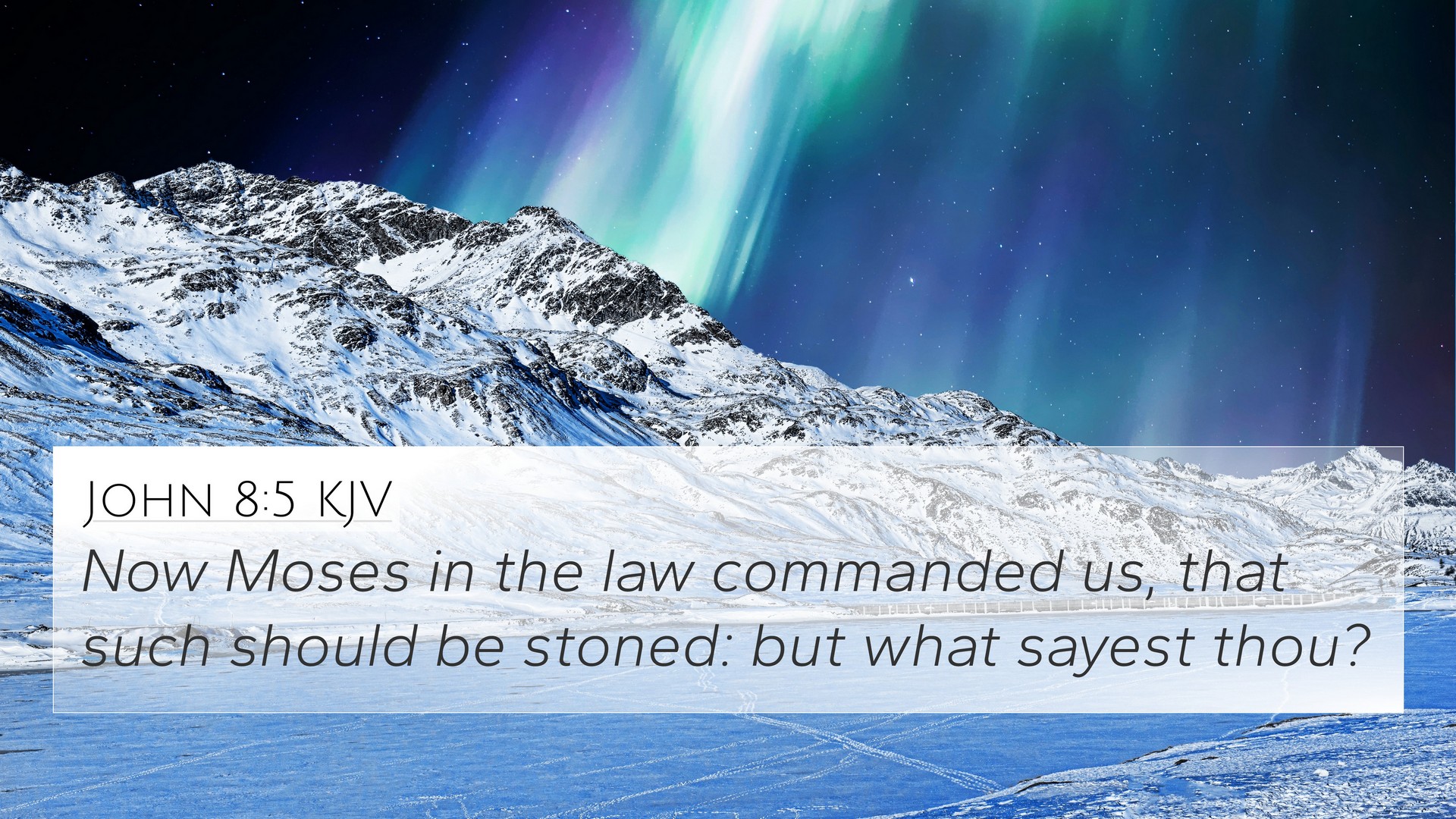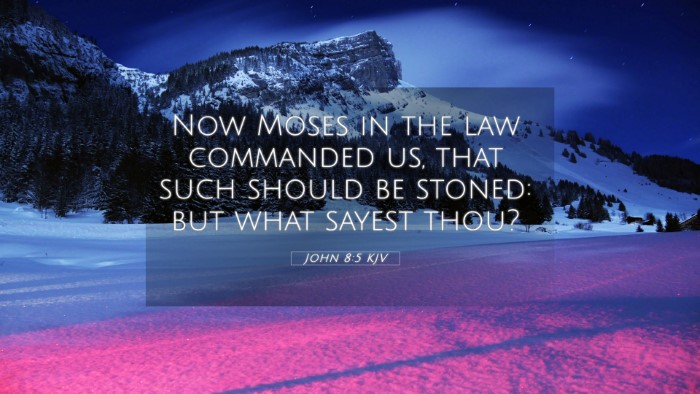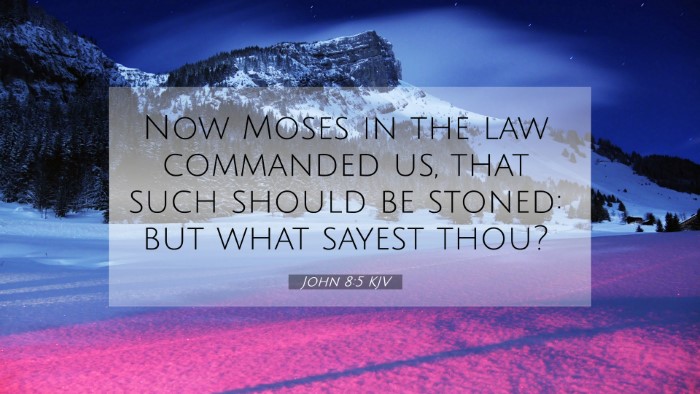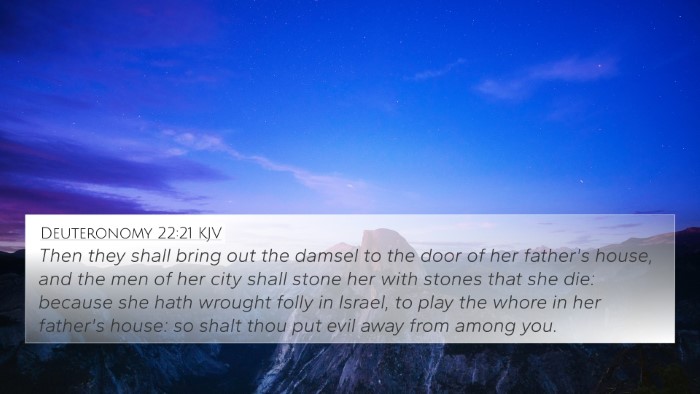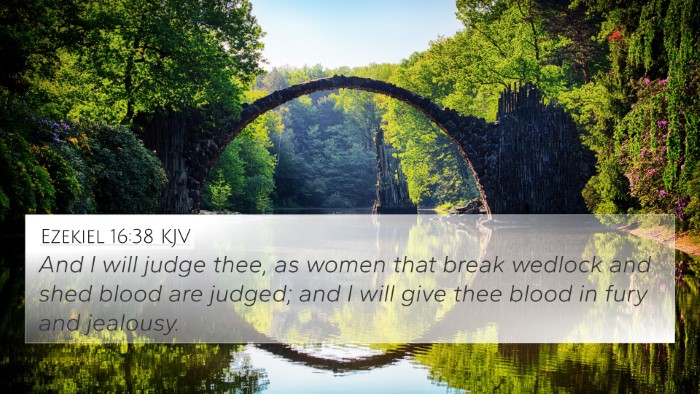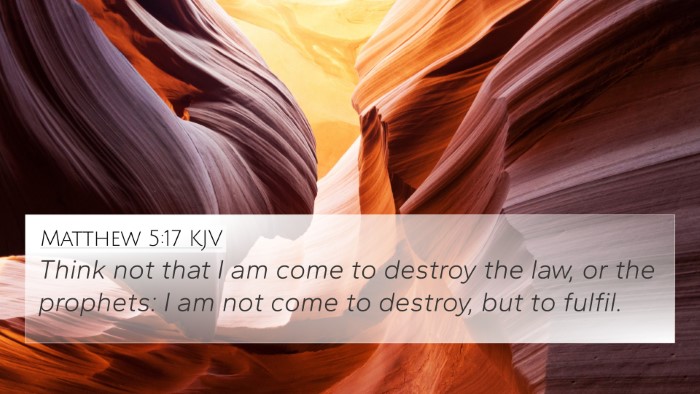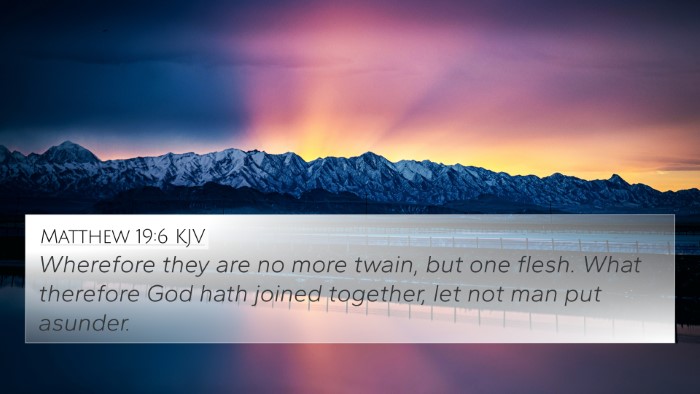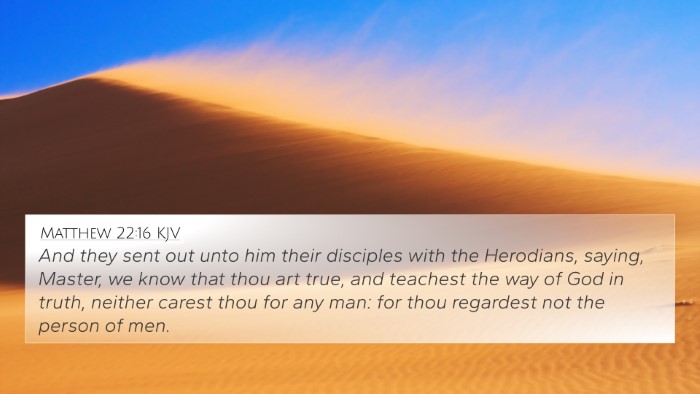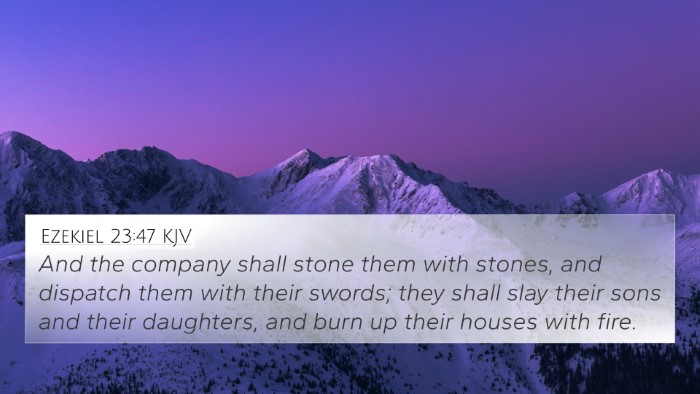Understanding John 8:5
John 8:5 states: "Now Moses in the law commanded us, that such should be stoned: but what sayest thou?" This verse is a pivotal moment in the narrative surrounding the woman caught in adultery, illustrating the tension between the law of Moses and the grace of Christ.
Context and Setting
This verse happens during an encounter between Jesus and the Pharisees who bring a woman accused of adultery before Him. They aim to trap Jesus in a dilemma, forcing Him to choose between upholding the Mosaic Law—where adultery warranted stoning—or demonstrating mercy linked to His teachings of grace.
Commentary Insights
- Matthew Henry: Henry emphasizes the legal implications behind the question posed to Jesus. He points out the cultural emphasis on the law of Moses and how the Pharisees used this as a weapon against Christ, failing to see the broader message of compassion and redemption that He embodies.
- Albert Barnes: Barnes highlights the hypocrisy of the accusers. He notes that they conveniently forget the requirement of the law that both parties involved in adultery should be brought before judgment. This underscores their intent to ensnare Jesus rather than sincerely uphold the law.
- Adam Clarke: Clarke discusses the significance of the phrase "what sayest thou?" as indicative of the authority of Jesus. This question directed at Jesus illustrates the expectations of the people to provide a verdict that could either align with the law or defy it in a way that would compromise His reputation.
Inter-Biblical Connections
The themes presented in John 8:5 find echoes across various passages in both the Old and New Testaments. Below are several notable cross-references that illuminate and enrich the understanding of this verse:
- Exodus 20:14: "Thou shalt not commit adultery." The fundamental command regarding sin and moral accountability.
- Deuteronomy 22:22: Stipulates the punishment for adultery, echoing the law used against the woman in this text.
- Matthew 5:17-18: Jesus declares that He came not to destroy the law but to fulfill it, hinting at His diverse approach to the Mosaic Law.
- Luke 6:37: "Judge not, and ye shall not be judged." This challenges the legality-focused mindset of the Pharisees, emphasizing mercy.
- Romans 3:20: Explains that the law brings the knowledge of sin, bridging the gap between law and grace.
- James 2:13: "For he shall have judgment without mercy, that hath showed no mercy.” Here, the theme of mercy in the face of judgment resurfaces, reflecting on the motivation behind their accusation.
- John 3:17: Jesus did not come to condemn the world, but to save it, showcasing His mission to provide salvation rather than immediate judgment.
Thematic Connections
Thematic connections present in John 8:5 involve:
- Justice vs. Mercy: This juxtaposition highlights the conflict between strict adherence to the law and the exemplification of mercy.
- Hypocrisy of Judgment: The focus on the moral failings of others compared to one's own sinfulness is a recurrent theme in Jesus’ ministry.
- Authority of Christ: The challenge presented to Jesus by the Pharisees reflects their struggle to accept His divine authority and extensive wisdom.
Conclusion
In conclusion, John 8:5 serves as a critical text for exploring the intersection of law and grace, illustrating the complexities of righteous judgment versus compassionate mercy. Understanding this verse through the lens of public domain commentaries reveals rich insights into Jesus' ministry and fundamental biblical themes. Furthermore, engaging in cross-referencing biblical texts allows for a deeper appreciation of the nuanced relationships between scriptures, enhancing one’s overall comprehension of biblical narratives.
Tools for Bible Study
For those looking to delve deeper into the connections between Bible verses, utilizing a Bible concordance or a cross-reference guide can be immensely beneficial. These tools provide systematic ways to explore the myriad linkages present within the scriptures, enriching one’s study and helping to uncover the profound interconnectedness of biblical themes.
